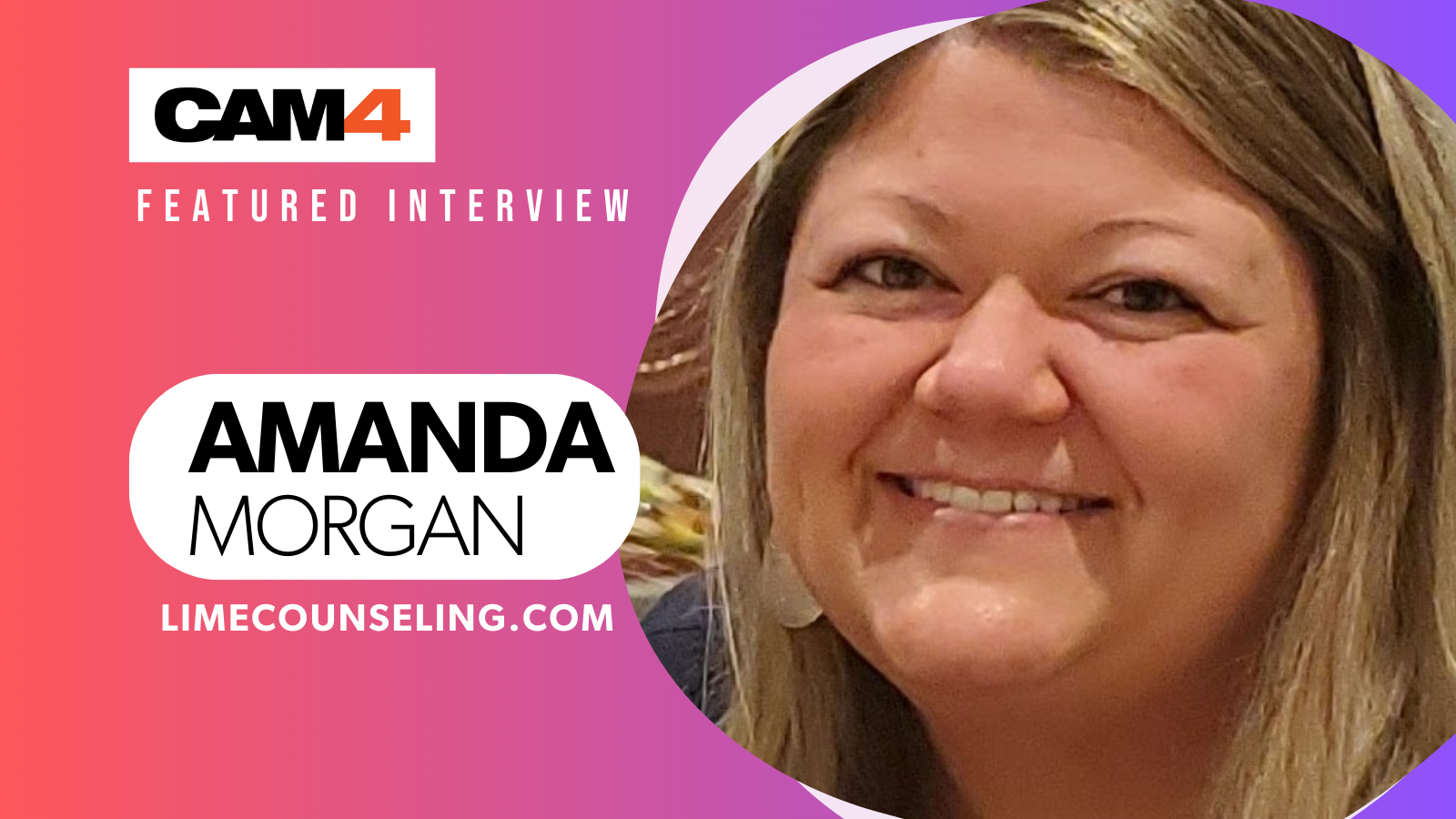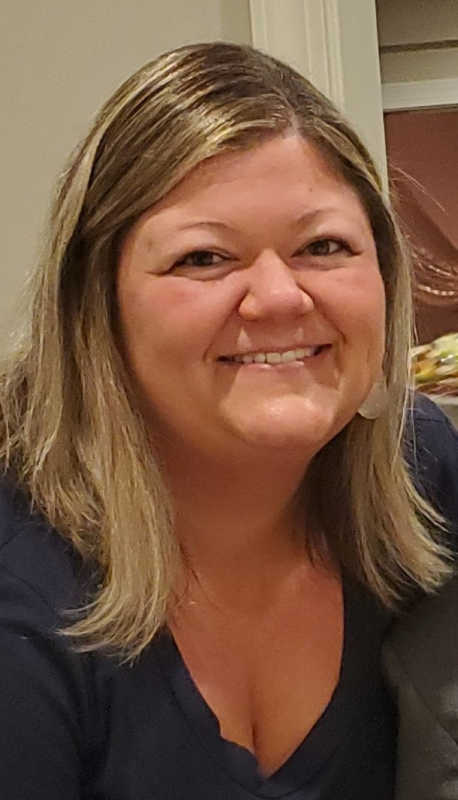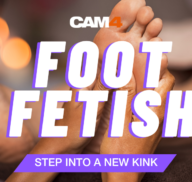Amanda Morgan: Providing a Safe & Confidential Space to Promote Emotional Wellness

Amanda Morgan is a Licensed Clinical Social Worker whose aim is to help people find emotional, social, physical, spiritual, occupational wellness and recovery. Since attaining her degree in social work, she has gained knowledge and experience in a variety of different areas, including PTSD, abuse, trauma and grief, as well as numerous social and life-changing needs. Amanda also specializes in helping those with LGBTQ+ needs, as well as those working in the adult entertainment industry.
Amanda provides her therapy services through Lime Counseling, who fully understand that most people will experience situations in their life where they require support, encouragement and direction. The ultimate goal for Lime Counseling is to lead you to a healthier and happier life, through a unique client-centered virtual approach to therapy and support services. Amanda’s services include a mix of acceptance and commitment therapy, cognitive behavioral therapy, exposure response and client-specific therapeutic techniques.
“I truly enjoy helping individuals who are seeking solutions to challenges they are facing”
says Amanda Morgan
If you are struggling with life changes, or feeling overwhelmed, anxious or stressed, then Amanda and the team at Lime Counseling are there to support your unique needs. They can provide help with your mental health evaluation, serving clients from any background. If privacy is an issue, or you don’t like phone or video options, Amanda and the team also offer a text-based service for their clients. They also offer support services for those who frequently travel across state lines.
Amanda genuinely enjoys working with all individuals, and she places value in the fact that everyone’s story, rationale, and feelings are all different. Above all, her first and foremost aim is to help you succeed in finding the best version of yourself!
CAM4 recently interviewed Amanda Morgan of Lime Counseling
Read below or watch the interview to gain more insight:
Please tell us a little bit about who you are, what you do, and how you found your way into this field of work.
I’m Amanda Morgan of Lime Counseling, and I have been in the field of social work for quite some time, particularly this line of work. I got into this field of work because of my own personal experiences with it, and more importantly, the variety of feelings that were associated with the different roles, and different people that I’ve spoken with. My aim was to find a space, and make a space, for people that may have shame and guilt, and a lot of different feelings related to the particular line of work that they’re doing.
I’m also aware that there’s a variety of really positive outcomes that go along with self-empowerment, as well as being able to make your own choices and workplaces, and everything associated with that. Ultimately, I wanted to create Lime Counseling to provide a space for people to come to just the way they are, and not have any shame or guilt, but to be able to talk openly and freely about the work that they’re doing.
Is there an aspect of care that is unique to this industry, or a need for care that is unique to creators in this industry?
I absolutely believe that care can be such a broad topic, although it is really unique to this particular population, due to the line of work that’s involved. We know that this role can take a toll on a person, physically, socially and mentally, so there’s a need to be aware of those different aspects. I’ve heard from many individuals who are cam creators, that they’re spending well over 8 hours a day on cam, and most of them are online for over 40 hours a week. We know about the implications that can have on physical health, not to mention being socially drained, which can also be very isolating at times.
This particular line of work can be really rewarding and fulfilling to individuals, and we want to make sure that that’s how they’re actually feeling in the work that they’re doing. However, there can be times where some interactions can make those people feel devalued, and bring about feelings of shame or guilt. That is why care is really unique to this particular line of work.
How can someone who is in this industry become more observant of the identifiers that care is needed?
There are tons of ways that we can identify if we need care, and one of the biggest ones is to listen to your body. Take the cues from your body, they’re giving you those cues for a reason. One cue is feeling burnt out, which can look like a lot of different things to all sorts of people. You may be feeling emotionally or physically exhausted, you may be drained, you may feel detached from the work that you’re doing, or in your everyday life outside of work. You may also be noticing that you have too much work to do, which leads to possibly being avoidant. You may be spending a couple of hours each day sitting there mindlessly scrolling through your social media feeds, which is a very easy escape for us nowadays.
Another signal is that feeling of being isolated from your community, family and friends, or whoever your support system is. Next could be a change in mood, such as becoming more cynical or negative in nature. Another body cue is things like sleep patterns and other physical symptoms. This can come in many forms, such as headaches, elevated heart rate, reduced libido, hair loss, memory loss, etc. All of these different physical changes can be signs that maybe we need to take a step back, and look at what we need to do to adjust for some self-care.
When looking at the demands, as well as the pleasure of spending hours on cam, how does someone in this industry go about trying to build balance to help avoid burn-out?
I talk to people quite often about being intentional with your scheduling, making sure that you’re not overbooking yourself, and you’re not sitting there on a computer for over 8 hours a day. That’s just not healthy. Regardless of what you’re doing outside of those 8 hours on cam, it can be very exhausting. Make sure that you find that balance of what’s going to feel right for you, and then that social piece, such as getting connected with other people. That may be by sending a text, or having a phone call, even if it’s not in-person, just reaching out to other people, rather than just sitting at a screen.
When talking about self-care, how can someone give themself that care when they may not know what that looks like, or how to cater to it – What’s your advice?
There are tons of ways to provide self-care, but I want to highlight the fact that there are five main beneficial areas to focus on. They are physical, emotional, mental, spiritual and social. Let’s break it down a little bit, piece by piece. Starting with physical, which everyone will be very familiar with. This includes eating healthy foods, exercising, dancing, making sure that our body feels good, having massages, all of those things fall under physical. Next is emotional, and we want to make sure that people are enjoying things. This could be learning new things, or trying something new. Watching a comedy movie and laughing, or telling jokes with friends. All of these things are classed as emotional, since they’re about feeling good.
The next area is mental, which may be about breaking away from the screen for a bit, or getting away from our own thoughts, because our own thoughts can be very challenging at times. If we do things like painting, drawing, gardening, singing, listening to music, all those things allow us to shift our mind away from our own thoughts, and that allows us to focus on something else. You may want to think about a workout class, or something like that, to shift your mind away from some of those thoughts and onto something else that’s a little bit different. It could even be things like journaling or therapy, anything that ships us a little bit away from what’s going on in our own mind at that point in time. Next is spiritual, and that doesn’t necessarily mean something religious or practicing a religion. This simply means connecting with things that are larger than yourself. For example, taking time out for nature, watching the sunrise, watching the sunset, or volunteering. Spiritual self-care can also include praying or meditation, leading to forgiveness of yourself and others.
Finally we have social, which is about fostering your friendships. This is connecting with your families and friends in a healthy way, and really making sure that you’re enjoying time with the people that make you happy, people that put a smile on your face. This can also help with learning to create healthy boundaries with those people that may not be putting a smile on your face, or things that you may have reservations with. You could take a day trip, go somewhere new and do something different to get out of the house. To reiterate, self-care is going to look different for each individual, but once you find those things that really work for you, keep that self-care regular and make sure that it is intentional self-care.
How can people within this industry be a stronger support to the rest of our community?
One of the biggest things we can be a part of, is being a support for others. Making sure that we’re there, because everyone always needs someone to talk to. It doesn’t have to be a therapist, just being a friend, being a listening ear. It’s also about sharing, and there’s so much value in sharing both the positive and negative experiences of our work and of camming.
It’s important for everybody to feel supported along the way, just offering advice or input can be very helpful. A larger part of this is about connecting to your community. It’s about volunteering, which is a great way to also feel good about yourself, to know you’re giving back in some way. Reaching out and seeing who may need some assistance in your community, and then connecting. It’s good to build other social connections, which can definitely be helpful along the way in terms of your own self-care.
Is there any piece of advice that you have to tackle a mindset of judgment about our industry, or to tackle bullying threats that exist in this challenging environment?
Finding that community for yourself is the biggest piece of advice I can give. Knowing that not everyone is going to understand and accept this type of work, yet we can still have relationships with those people. Often these are family members, but just as often, family members don’t know about the work that we’re doing. The key thing here is, you’re not alone, these are the things that come up frequently. These relationship dynamics happen with everyone in this line of work. It’s about what is best for you, and finding out how you are going to navigate this, because that will look different for everyone.
The most important thing is making sure you have support with the work that you’re doing, which may not be friends or family. That may be a very separate part of your life, which is perfectly okay, and for some people these are our friends and family, which is also ok. It’s a matter of finding that balance of what is going to feel best for you, and what makes the most sense for you to live your authentic self. That’s what this boils down to, because everybody has different opinions, beliefs and values. As well as being authentic to yourself, it’s also about gaining an understanding of what this particular line of work means for you, and what it’s doing for you. This can then help to settle it a little bit more in people’s minds as well.
How can people get in touch with you?
It’s very easy, you can go to our website. LimeCounseling.com and on there is a ‘Contact Us’ form, as well as our email contact and phone number. You can also check the links below to find details of how to contact me.
.
CONNECT WITH AMANDA MORGAN
Psychology Today Profile: @LimeCounselingLLC
Lime Counseling Facebook: @LimeCounseling
Lime Counseling Website: LimeCounseling.com




















